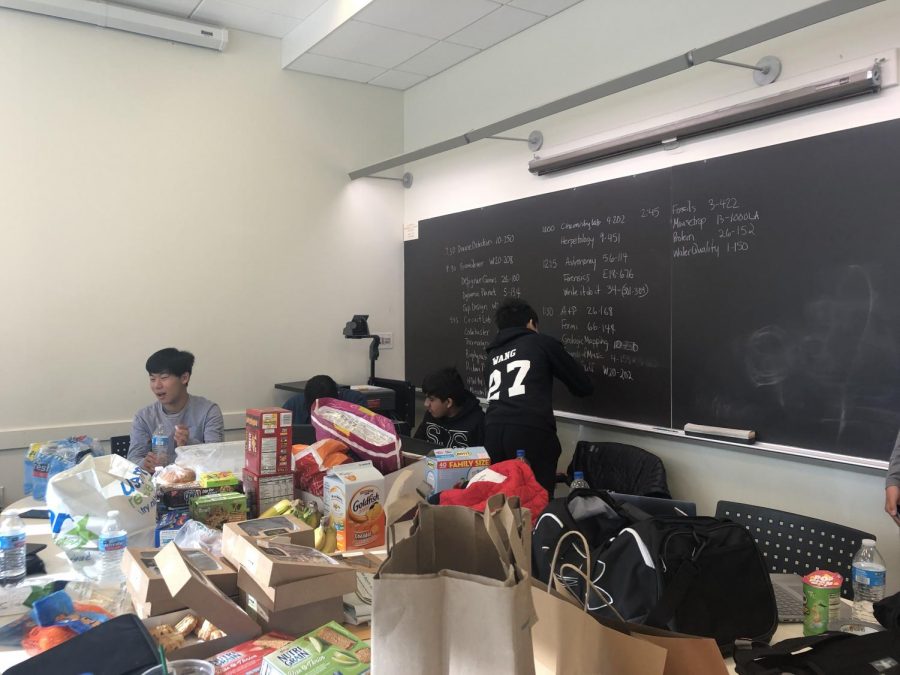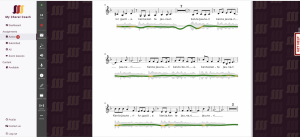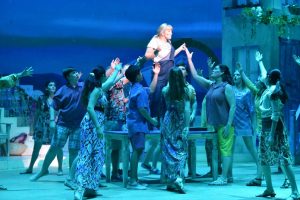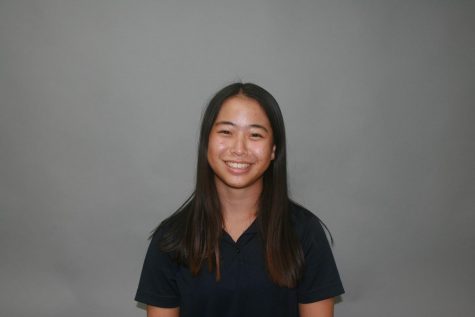Clubs move practices online, prepare for virtual competitions
In 2019, the Science Olympiad team traveled to the MIT Science Olympiad tournament. This year, the team plans to participate in online competitions.
October 5, 2020
The Science Olympiad team qualified for the state tournament last spring, but when COVID-19 swept through the nation, the next round was canceled. Now, after a summer of preparation, the team is ready to return to the modified world of competition.
The pandemic has forced teams including Quiz Bowl, Ethics Bowl, Model UN, French Symposium and Science Olympiad to adapt.
“It’s certainly very challenging to adapt curriculum or timeworn traditions,” said Elizabeth Willcutt, one of the French Symposium faculty sponsors, “but it’s also kind of exciting to come up with new techniques to tackle the same content.”
Clubs have moved practices online to accommodate for the new five-day schedule and allow club members in Groups A and B to continue participating safely.
Last year, the Quiz Bowl team practiced three times a week during lunch, but now meetings are on weekends.
Model UN student delegates will not begin meetings until all students are back on campus, according to senior delegate Pierce Ederle.
Students and teachers have voiced concerns that camaraderie could be diminished with so many meetings and practices occurring over Zoom.
Tav Tavakoli, the faculty sponsor of Quiz Bowl and Ethics Bowl worries that a “sense of autonomy and independence will be hampered by the virtual efforts.”
“There was one [tournament] where we brought a joke book, and were just trading puns,” said Elijah Dahunsi, Quiz Bowl president. “That interaction is gone, but on the flip side, because there is no need to travel to where tournaments are being held, we’ve seen more participation.”
While most clubs have given up hope of attending in-person competitions until next school year, Model UN is still expecting to have their January conference in person.
“If things worsen with COVID-19, I’m not sure that they would do a virtual conference,” said Ederle. “They might just cancel it entirely.”
Earlier in the summer, during a virtual Quiz Bowl competition, the Texas Quiz Bowl Alliance (TBQA) caught a Houston team cheating. As punishment, the team was banned from the league for five years. Joey Ewbank, deputy director of TQBA, said that he expects cheating to increase during online tournaments, and that this infraction will be harshly punished.
Although this will be difficult to counter, Ewbank said that online competitions will have an overall positive effect because teams in rural areas will have the opportunity to compete without having to drive halfway across the state. Once the pandemic subsides, he is optimistic that there will be enough participation in those areas to have in-person tournaments.
“I’m getting a lot more interest and availability from my students right now,” Ewbank said. “They’re a lot more willing to hop online for a Saturday versus drive an hour to a school in Katy.”
Club sponsors and student leaders agree that while it is important to continue educational opportunities, there is something about the experience that is lost in the transition online.
“Last year, the Science Olympiad community was not prepared for virtual tournaments. So, there were no state or national tournaments. Going into it this year, and knowing this has to be virtual, will make more of those events actually happen,” said Roxie Allen, a Science Olympiad faculty sponsor. “Hopefully, we can get more kids involved in it again and move forward.”










Ashish Kumar • Dec 24, 2020 at 12:25 AM
Appearing in Olympiads has always helped me to improve my lateral skills. This article is written in a very nice manner. I would definitely recommend this website to my friends as a lot of valuable content is provided here. Also, the Olympiad Success organization has really helped me to secure a rank in the Olympiad exam. It is the best organization for helping students preparing for various Olympiad exams that has helped me. Please recommend me more organization names that can help me preparing for Olympiad exams.